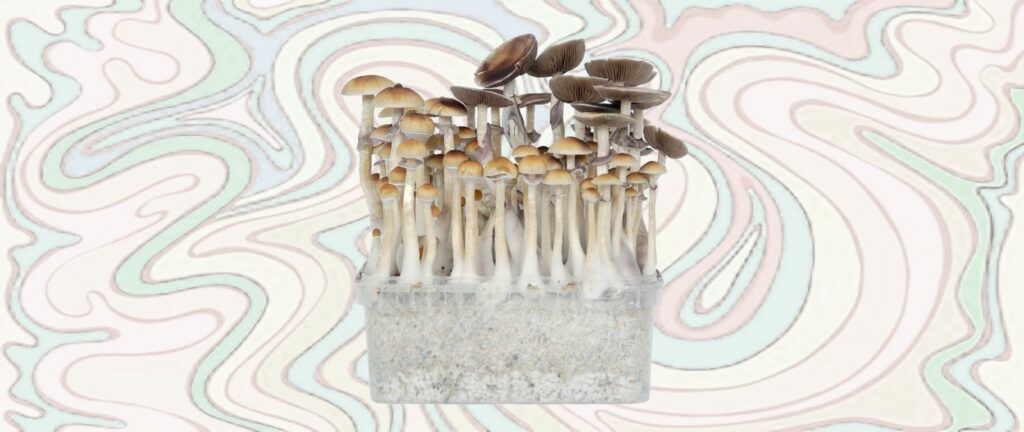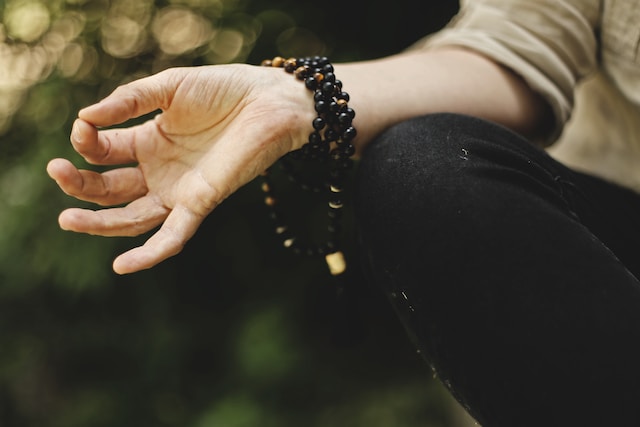Remember when shrooms were prized only for their trip-inducing quality? Psychedelic research has made massive strides since then during the last couple of years. So, it’s no big secret that psilocybin, the active ingredient in magic mushrooms and magic truffles, has emerged as a promising treatment for a host of serious mental health issues. Chief among those being major depressive disorders.
And for a while, scientists have known psilocybin is able relieve the dreaded symptoms effectively for up to a month. Sounds good, but it could always be longer, right? Could there be a way to tweak the conditions just a scooch to make your “calm period” last for weeks? Maybe even for months on end?
Let’s find out, shall we!
Psilocybin Can Relieve Major Depression for a Year
In a brand-new report published in the Journal of Psychopharmacology, researchers from Johns Hopkins Medicine have found that with the proper setup, the antidepressant power of psilocybin-assisted therapy can last for around one year for patients. Will this discovery change the nature of mental health treatment for good?

As pioneers in the field of psychedelic research, Johns Hopkins Medicine has done countless studies on the effects of psilocybin on those who live with major depression. In a 2017-2019 experiment, for instance, the team wanted to study one factor that has remained the same. That psilocybin can relieve the debilitating symptoms of depression effectively… but for a month at most. Why was that? So, they combined the psilocybin doses with structured psychotherapy (also known as talk therapy).
Enter 2022. The researchers have decided to follow up on the same participants to see if the gambit worked. And work it did! Their two-punch combo of psilocybin and talk therapy has led to patients not experiencing symptoms of major depression for several months, even up to a year. For some, this was the longest they’ve ever felt relief from the condition.
Durable Improvements in Depression
Dr. Natalie Gukasyan, assistant professor of psychiatry and behavioural sciences at the Johns Hopkins School of Medicine, said that psilocybin may help bring long-term relief from depressive symptoms:
“Our findings add to the evidence that, under carefully controlled conditions, this is a promising therapeutic approach that can lead to significant and durable improvements in depression.”

Gukasyan points out, however, that the results came from a very particular clinical setup, with a team of experts to make sure the psilocybin-talk therapy hybrid went well:
“…the results we see are in a research setting and require quite a lot of preparation and structured support from trained clinicians and therapists, and people should not attempt to try it on their own.”
Psilocybin-Talk Therapy Combo
The study began by seeking out 27 volunteers who have lived with depression long-term. Specifically those who have suffered for at least two years already at the time of testing. The participants had an average age of 40: including 19 women, with 25 Caucasian subjects, one African-American, and one of Asian descent. A huge chunk had already tried Big Pharma antidepressant meds in the past (88% of them). More than half were currently on antidepressants to help cope with depressive symptoms (58%).
After being chosen for the study, the volunteers were split into two groups. The first group would receive the psilocybin-talk therapy combo right away; the second group after an eight-week waiting time. All 27 participants were given prep sessions lasting six to eight hours with treatment facilitators. This was to prepare them for the psilocybin experience.
Works Better Than Imagined
When they became aware of what to expect from shrooms, the participants took two full doses of psilocybin. They had two weeks of “breathing space” between each dose. Both doses were given at the Behavioral Biology Research Center at Johns Hopkins Bayview Medical Center.
The subjects were also asked to take part in follow-up talk therapy sessions after 24 hours and seven days after taking psilocybin. Following the second dose of shrooms, they were given talk therapy one month later, and then three, six, and 12 months after. Only three participants were unable to finish the psilocybin-talk therapy package deal. The remaining 24, however, showed extremely positive results from the psychedelic-assisted psychotherapy setup. In short? The trial had worked like an absolute charm. A whole lot better than they’d previously imagined.
Massive Drop in Severity of Symptoms
Now you might ask: How does one measure the severity of depressive symptoms? To answer the question, scientists from all over the world would often use an assessment tool called the GRID-Hamilton Depression Rating Scale. Here’s how it works. If you score 24 or more, that means you’re living with severe depression; 17-23 moderate symptoms, and 8-16 mild symptoms. Meanwhile if you score 7 or less, then you have no major depressive disorder.
For the study, the Johns Hopkins researchers measured signs of depression using GRID-Hamilton before and after the participants got psilocybin with talk therapy. All of the subjects showed massive drops in severity in terms of depression symptoms, and it stayed low from one to three, six, and 12 months after their last dose of psilocybin.

From a worrisome GRID score average of 22.8 before the first psilocybin dose, the participants’ depressive symptoms went down to 8.7 after a week of getting psilocybin. The score dropped further to 8.9 after four weeks, 9.3 after three months, 7 after six months, and 7.7 a full year after the second (and last) dose. Majority of the group felt a “positive life change” after taking shrooms (75%) and only half still had symptoms after 12 months (58%).
New Treatment for Depression
Dr. Roland Griffiths, founding director of the Johns Hopkins Center for Psychedelic and Consciousness Research, predicts that psilocybin may very well replace standard depressants in the near future:
“Psilocybin not only produces significant and immediate effects, it also has a long duration, which suggests that it may be a uniquely useful new treatment for depression.
“Compared to standard antidepressants, which must be taken for long stretches of time, psilocybin has the potential to enduringly relieve the symptoms of depression with one or two treatments.”
The rest of the Johns Hopkins team — composed of Alan Davis, Frederick Barrett, Mary Cosimano, Nathan Sepeda, and Matthew Johnson — wrote in the study that more research is needed to see if psilocybin’s effects could last longer than 12 months. This next step may take place after their current major project where Johns Hopkins is just one of several players: a nationwide randomised, placebo-controlled study of psilocybin for major depressive disorder.
America’s biggest psilocybin trial yet!
The Psychedelic Renaissance is NOW

The past two decades have seen a burgeoning renaissance in psychedelic research, with a special focus on entheogens such as magic mushrooms and magic truffles. Not only can a proper shroom trip alter your perception of the physical world, it can also open doors to hidden emotional depths by way of ego death. Now the world of medicine, once in thrall to Big Pharma, has finally seen shrooms’ potential to change how we treat serious conditions such as major depression and addiction. There’s just no denying it, is there? These new findings from Johns Hopkins have provided the proof yet again — and we’ve only just begun.





